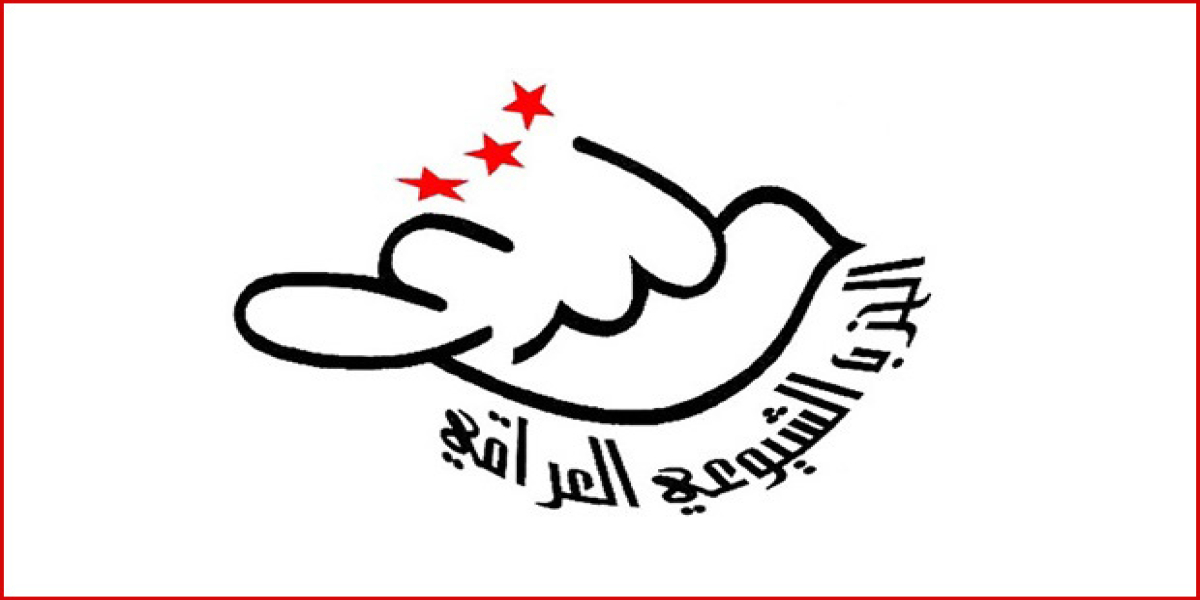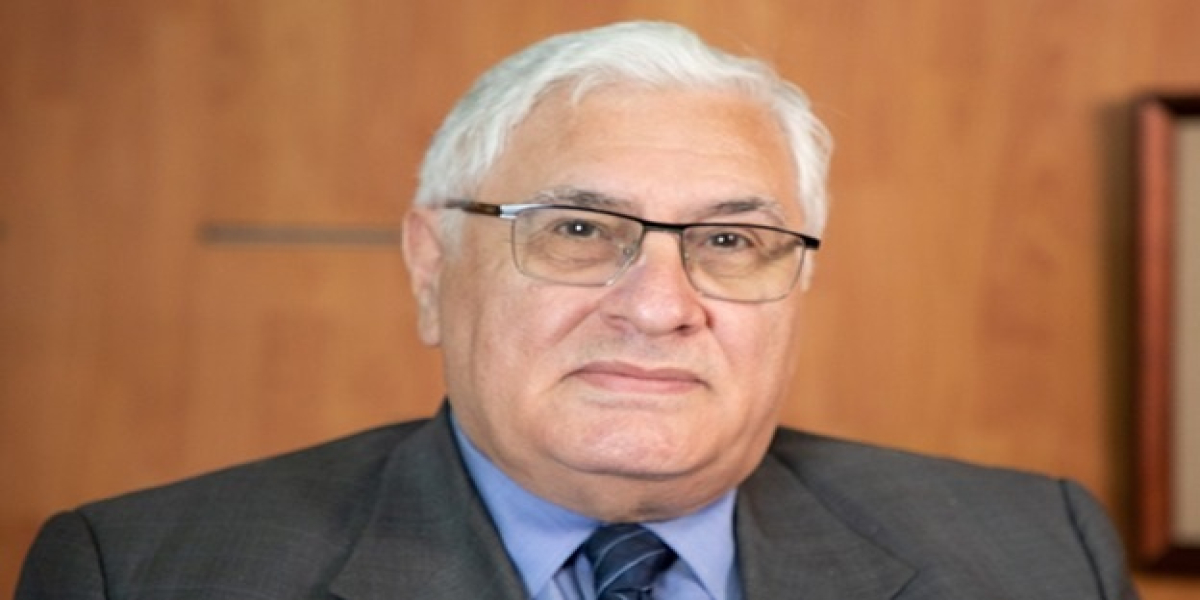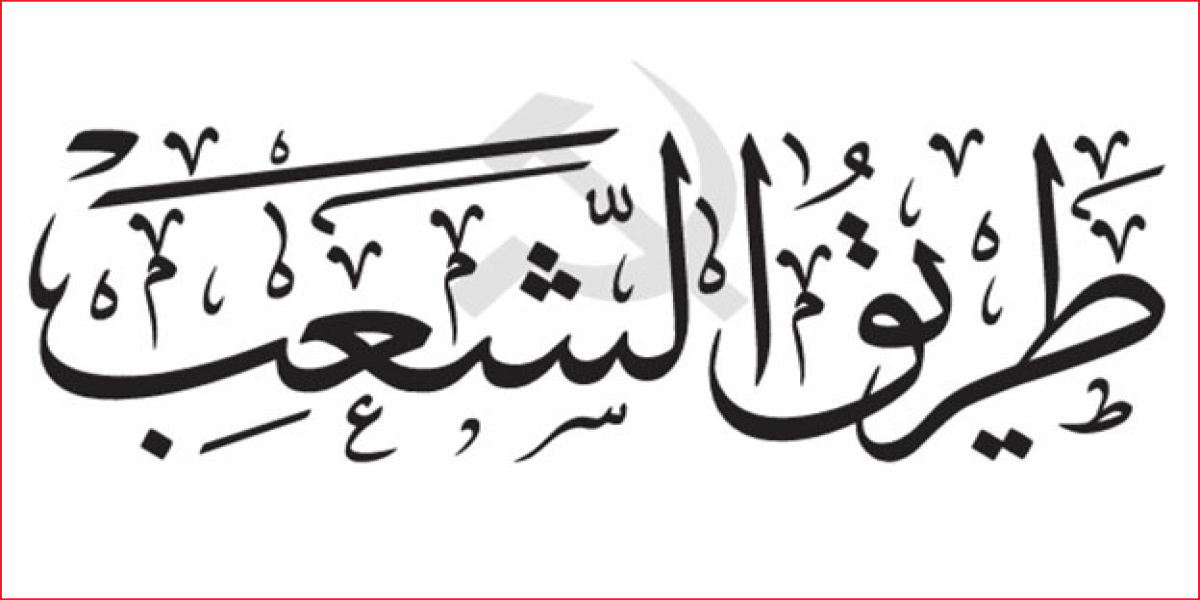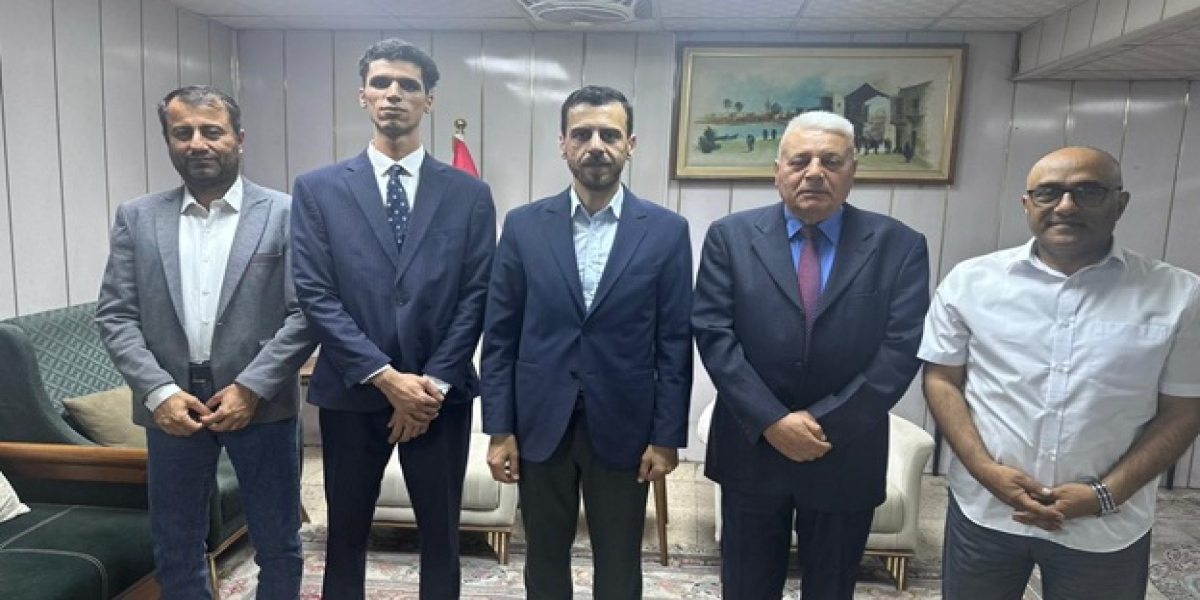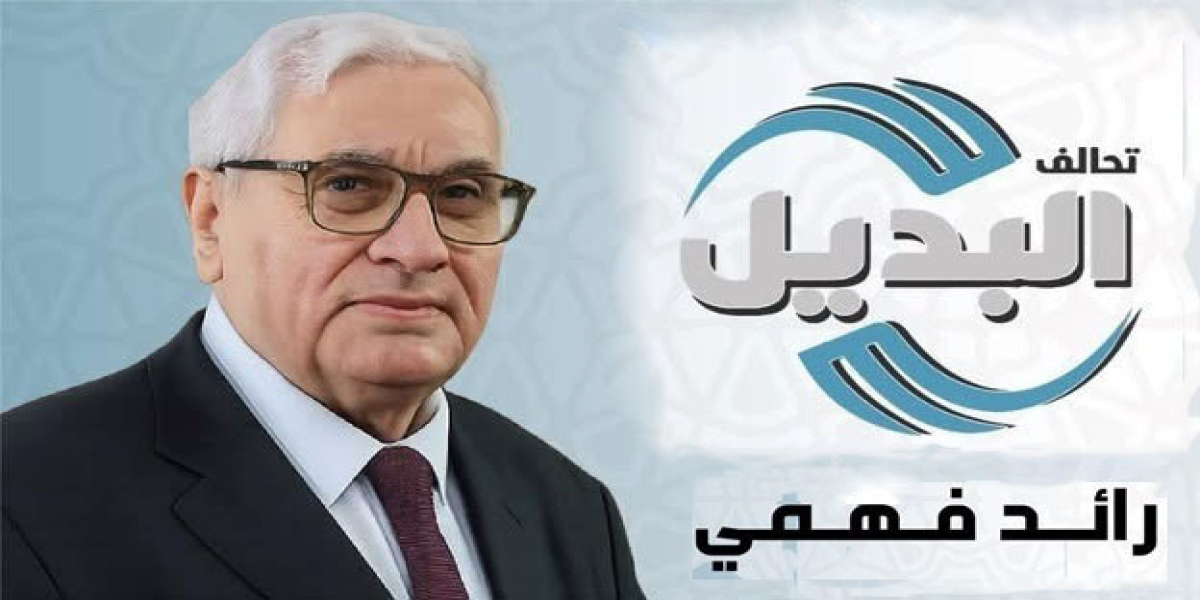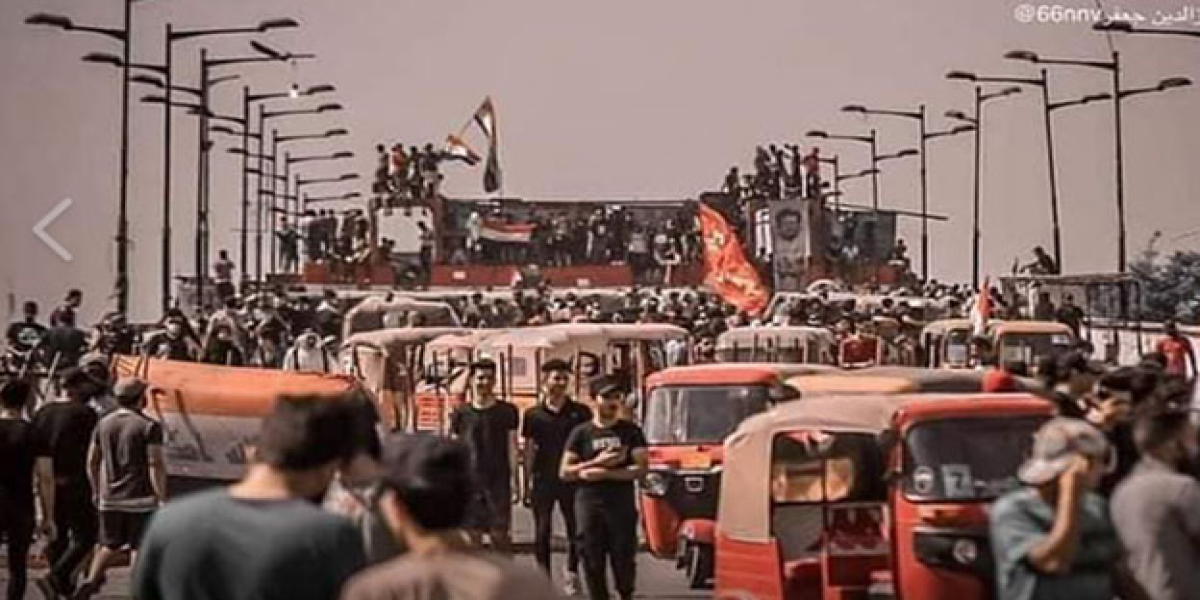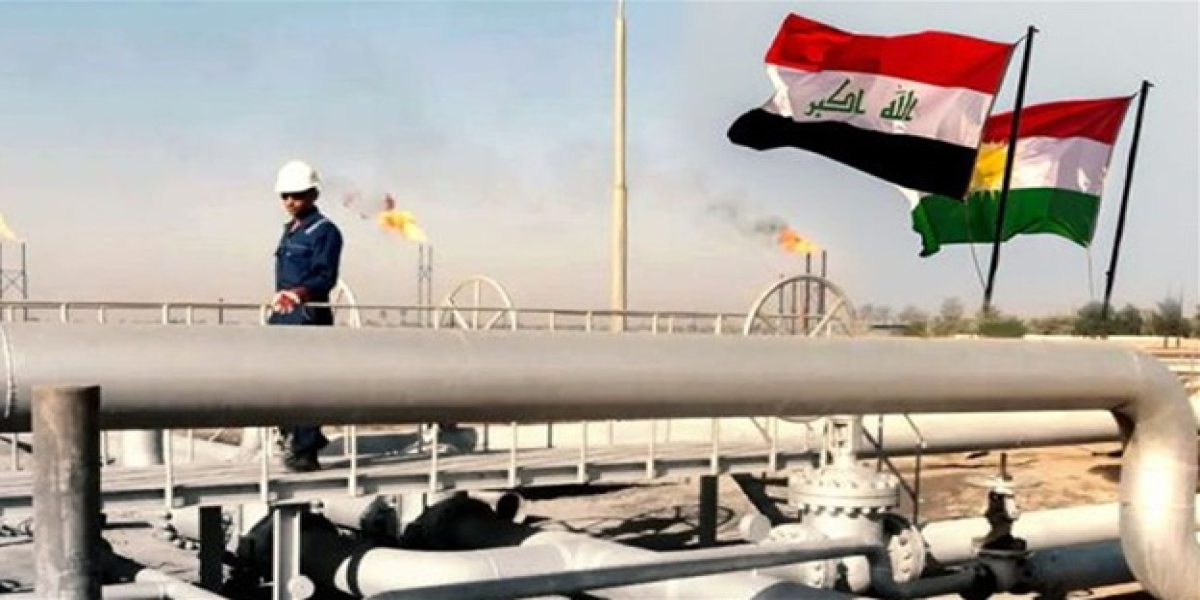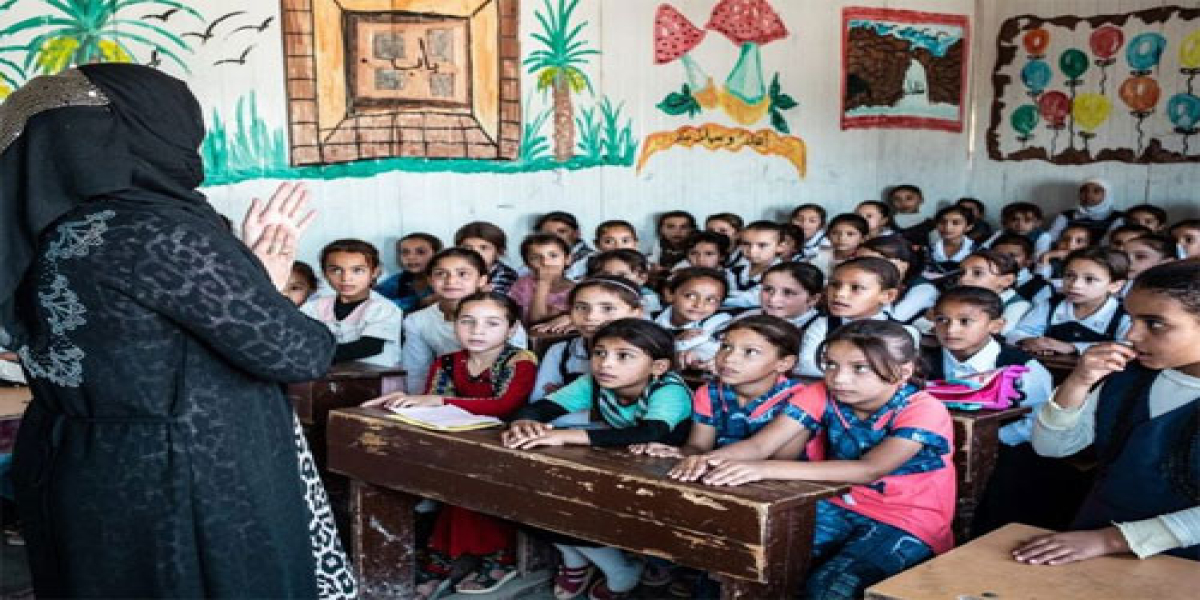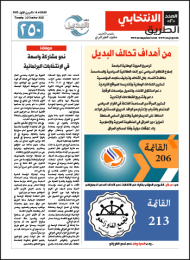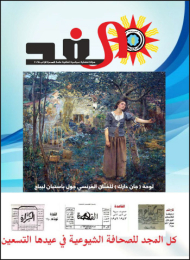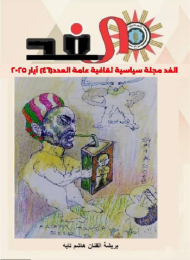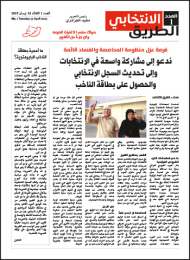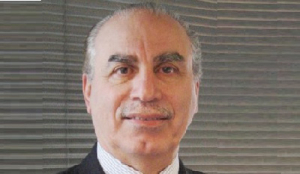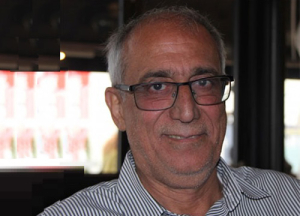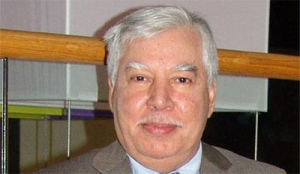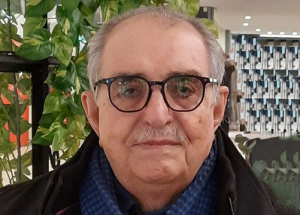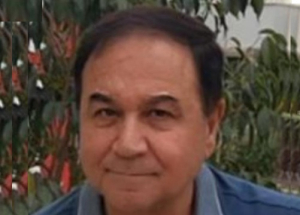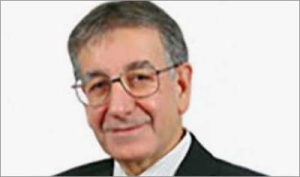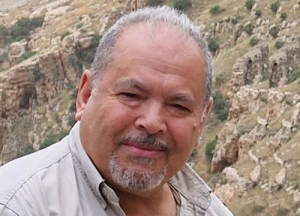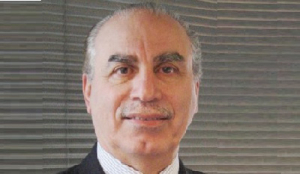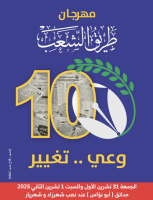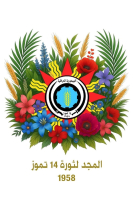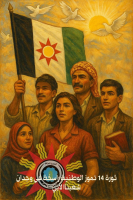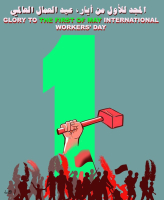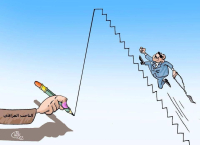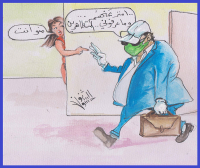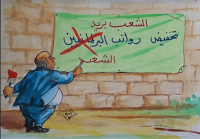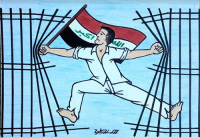- التفاصيل
- المجموعة: English
- الزيارات: 6830
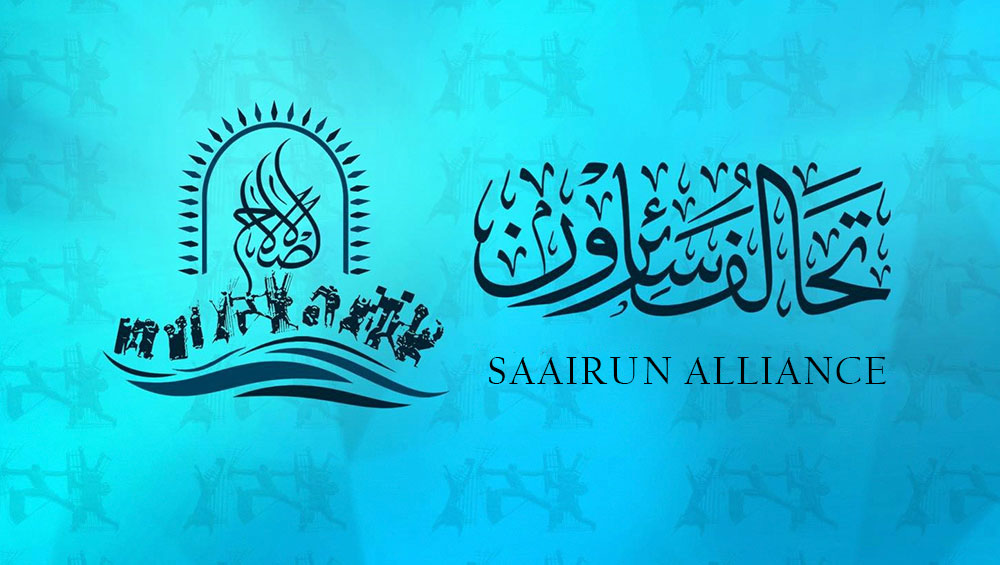
To Build a Civil State .. A State of Citizenship and Social Justice
(Electoral List No.156)
The “Saeroun” [i.e. Marching Forward] electoral alliance, which is a national trans-sectarian and anti-sectarian project, seeks to achieve its objectives presented in this program, in accordance with the mechanisms set out in its internal rules. These objectives are essentially to eliminate the system of sectarian and political quotas, to strengthen the civil and democratic character of the state, to form a national parliament whose members are characterized with integrity and competence, to restore the status of the parliament among citizens and provide it with the opportunity to exercise its effective oversight role. The objectives of the alliance also include achieving social justice, combating corruption, promoting peace and security, implementing the reconstruction process and the guaranteeing the rights and freedoms of citizens and their dignified lives.
The alliance “Saeroun” is a new model that has emerged from the core of society and from the popular protest movement where cooperation and coordination developed and grew among our patriotic forces, of all shades, that participated in this movement. The alliance is facing big tasks in the political, security, economic, social, cultural and media fields:
First: Reform and Building the State
The alliance “Saeroun” strives for:
- Establishing a civil state based on citizenship and ensuring social justice, a state that is strong with its institutions, capable of taking its independent decisions, that reflect its prestige, the country’s national sovereignty, territorial integrity and unity, and establishing balanced Arab, regional and international relations based on common interests, non-interference in internal affairs and mutual respect for the sovereignty and independence of each state.
This state relies, in formulating and implementing public policies on patriotic and competent professionals and technocrats, who sincerely work for the people and the homeland, through the implementation of programs for change and reform, without discrimination and the policy of sectarian-ethnic quotas.
- Developing a strategy to combat terrorism and extremism, based on an integrated system of political, security, economic, social, cultural and media measures aimed at drying up the financial, political and ideological sources of terrorism and extending the state's influence.
- Achieving national unity based on a federal Iraq that is unified with its various ethnicities and sects, and guaranteeing the rights of all on the basis of the Constitution, the rule of law, institutions, political pluralism and the peaceful transfer of power.
- Achieving societal reconciliation and civil peace.
- Solving the problems existing between the Kurdistan Region and the Federal Government on the basis of the Constitution and with the aim of strengthening national unity.
- Guaranteeing the legitimate rights of minorities in accordance with the Constitution, and ensuring the freedom of religious beliefs and the participation of all the minorities in political and social life.
- Enacting legislations that ensure the implementation of necessary reforms in various fields, that would include reviewing, revising and amending the Constitution, especially in relation to some vague and controversial articles, in order to strengthen the federal democratic structure of the state.
- Reforming the electoral system to ensure regular and periodic fair and free elections, and enacting a fair electoral law that allows broad participation and without any discrimination among citizens.
- Ensuring the good management of the state and the spending of public funds, and the provision of opportunities for all citizens to enjoy constitutional rights, duties and freedoms on an equal basis.
- Independence of the judiciary and activating the role of the public prosecution.
- In the field of state administration, emphasis should be placed on the adoption of standards of competence and integrity, the application of the Civil Service Law, implementing administrative reform, combating bureaucracy and red tape, and the adoption of electronic governance.
Second: Social justice
Among the first objectives of the "Saeroun" alliance are to defend the interests, rights and freedoms of the people, especially the poor, to provide them with decent living, to review the legislations related to wages, salaries and privileges, reducing the income gap, to adopt a fair tax system, provide basic services with minimum costs, and improve the contents of the ration card.
In order to achieve these objectives, the “Saeroun” alliance will strive to:
- Enact a legislation to unify the salaries and privileges of the three leading bodies [i.e. the Presidency, the Prime ministership and Parliament] and ministers to be in line with their peers in public office.
- Reduce the number of security teams assigned to the three leading bodies [i.e. the Presidency, the Prime ministership and Parliament], ministers and members of parliament, so that they are provided through the Ministries of Interior and Defence.
- Activating the Social Security Law to ensure that it contributes to greater social justice, strengthening the existing social welfare network and developing it to include the establishment of funds to provide benefits in the cases of unemployment and incapacity as a result of employment and old age, and developing an effective system for financing such funds. In addition, providing social guarantees for pensioners, the elderly, housewives, widows and orphans, paying attention to caring for the disabled and people with special needs, and paying special attention to the families of the martyrs and the wounded.
- Ensuring the rights of women and expanding their participation in economic, social and political life. Developing economic, social and legislative policies and programs aimed at improving the situation of the youth of various strata, expanding their participation in political and economic life and creating a healthy environment to utilize and develop their potential.
- Enacting laws and legislations on the rights of the child aimed at protecting and nurturing children and providing appropriate conditions for the development of their capacities and talents, protecting them from violence, banning child labour and the prohibition of all forms of exploitation against them.
- Protection of human rights and civil liberties: Freedom of thought, belief and expression; freedom of the media and the press; freedom of party, professional and trade union work; freedom of demonstrating, sit-ins and all forms of peaceful protest. Stressing on the implementation of the Constitution in the field of rights and freedoms, and procedures for accounting for human rights violations.
- Supporting civil society organizations and providing means to involve them in addressing citizens' issues and finding solutions to their problems and the problems of the country in general.
Third: Combating corruption
The “Saeroun” alliance seeks to develop an effective strategy for combating corruption through:
- Adopting a set of legislative, executive and supervisory measures, in accordance with mechanisms that ensure the application of the principle of transparency and freedom of information, and placing the right person in the right place.
- Activating the cases against the most corrupt officials, ensuring that all the accused are brought to justice, and activating the principle of no-impunity.
- Striving to recover the money that was looted and smuggled abroad, in accordance with the legal regulations of the United Nations.
- Legislation of the law on illegal gain, and banning people indicted for corruption from standing for public office.
- Supporting and developing institutions concerned with combating corruption, and ensuring that they are led by competent, independent and impartial administrations.
- Reviewing the status of real estate seized by the influential politicians and their parties, and recovering what was seized illegally.
Fourth: Basic services
The “Saeroun” alliance seeks to:
- Improve basic social services, especially health and education services, defending their provision free of charge. To provide public services, and securing the necessary resources for the implementation of water, electricity, transport, housing, communications, and municipal and service projects.
- Securing the return of displaced and forcibly evicted persons to their cities and towns, the reconstruction of liberated areas, which still lack the most basic services, the allocation the necessary funds, and not to change the demographic nature of these areas.
In the field of education, “Saeroun” seeks to:
- Address the infrastructure problems through the construction of new schools.
- Pay attention to free education through the activation of the relevant law.
- Review and renew the curricula.
- Improve the working conditions of teachers and provide the necessary support and protection for them in order to be able to perform well their noble mission.
- Train teachers to keep pace with new developments.
- Develop and implement plans to eradicate illiteracy, and to tackle the problem of dropping out of education.
- Reassess private education and emphasize the need for private educational institutions to comply with the laws and regulations stipulated in the existing relevant legislations.
- Enact a new law for student discipline that corresponds to the current stage.
- Create employment opportunities for graduates.
In the field of health, the “Saeroun” alliance seeks to:
- Build a network of health guarantees of a social character by providing free health care to citizens, both preventive and curative, improving the level of health services, expanding the network of government hospitals and clinics in the urban, rural and remote areas, and providing them with the latest therapeutic medical and diagnostic equipment.
In the field of housing, “Saeroun” seeks to:
- Resolve this problem and the violations in this area to ensure the rights and needs of citizens, by giving the state the responsibility of providing housing that is suitable and healthy for low-income people and other citizens who are in need, in accordance with a comprehensive national plan to address the housing crisis.
- Ensure that the state shall assist the cooperative societies and the industrial and trade union institutions to build houses for their employees.
- Enhance the role of the Real Estate Bank and the Housing Fund, as well as the role of specialized banks that are concerned with financing private housing.
Fifth: Socio-economic issues
The “Saeroun” alliance believes that it is not possible talk about economic development without the development of the material, social and cultural infrastructure, and without ensuring the proper use of the funds allocated for this purpose. To achieve this, “Saeroun” seeks to:
- Establish development funds and manage them properly.
- Good use of soft loans that were granted to Iraq recently.
- Support the private sector and strengthen the banks concerned with industry and agriculture.
- Adopt a rational oil policy, enact an effective law for oil and gas, reduce the reliance of our economy on oil, and re-establishing the National Oil Company to undertake the management and supervision of exploration, extraction and development in the oil and gas fields, pay attention to the petrochemical and refining industries, and link the oil resources to sustainable development and the process of industrialization and the modernization of agriculture.
- Support and develop the sectors of industry, agriculture and productive services to expand the base of our national economy, and to develop a comprehensive plan for the process of investment in productive sectors and services.
- Complete the implementation of the suspended projects, numbering about 6,000 projects, and provide appropriate allocations according to priority.
- Develop mechanisms for coordination between the financial and monetary policies in order to develop the process of economic development, and seek to raise the real value of the Iraqi dinar, to enable the Iraqi citizen to meet his/her necessary needs while curbing inflation rates and strive to stabilize it.
- Reconsider the import policy and the saving policy, addressing the negative consequences in this field, and to reconsider the policy of unbalanced spending.
- It will also seek to reconsider the constitutional violations in the annual budgets, by stressing that these budgets will not be approved unless they are accompanied by final accounts.
- Combat the financial speculation that is taking place in the banking system through private banks and unlicensed companies, and activate the role of the Central Bank of Iraq in tightening oversight of banks and companies.
- Provide financial and legal conditions to attract competent and highly qualified Iraqis abroad in various fields.
- Pay more attention to the Iraqi countryside, modernize agriculture, reclaim lands and encourage farmers to take care of their land and increase its productivity in order to achieve food security for society through financing on concessional terms, and to guarantee fair prices for agricultural products. In addition, it will seek to protect the local products by enacting a law that imposes fees on imported and competitive agricultural products, rationalizing imports, paying attention to the production of agricultural commodities, and the rehabilitation of agricultural production plants and the factories and companies of the industrial sector.
- Address the unemployment problem as one of the main priorities of economic policy, especially among graduates, and guaranteeing the right to work for all citizens, without favoritism or mediation on the basis of partisan or sectarian affiliation, and in accordance with the Civil Service Law.
- The “Saeroun” alliance defends Iraq's water rights by negotiating with neighboring countries, using international regulations in this regard, working to stop water waste, using modern technologies in irrigation, and completing desalination projects.
In the field of culture, the “Saeroun” alliance seeks to:
- Allocate a fixed percentage (1%) of the annual state budget for culture.
- Guarantee the rights of intellectuals, freedom of creativity and intellectual protection of the cultural product.
- Ensure that the state shall provide support to cultural associations and organizations in order to exercise their activities.
- Support the claim for the establishment of a higher council for culture, literature and arts, and to enact a law for leave devoted to literary work.
In the field of sports, the “Saeroun” alliance seeks to:
- Restructure the sports sector, and enact laws for sports clubs and federations and for the Olympic Committee.
- Develop the infrastructure and prepare administrative leading bodies that are specialized in sports,
- Pay attention to sporting pioneers and champions, and develop a plan to train and develop young athletes.
Sixth: Armed Forces
- The “Saeroun” alliance seeks to build the armed forces on the basis of professionalism, competence and allegiance to the people and the homeland. It strives to develop the competence of the armed forces, as well as putting an end to the manifestations of the possession of arms outside the framework of the security services.
We, in “Saeroun”, will work relentlessly for the lofty goals of our alliance. We are determined to work together, in a sincere and serious manner, in order to fulfil the commitments of our alliance towards citizens and voters, so that “Saeroun” becomes synonymous with work and hope for establishing a democratic civil state, that will put the country on the path of attaining security, stability and prosperity, and achieving sustainable development, real progress and social justice.
- التفاصيل
- المجموعة: English
- الزيارات: 3684

The following statement was issued by the political Bureau of the Iraqi Communist Party on the Syrian crisis on 12th April 2018:
We are following with deep concern the very serious developments of the Syrian crisis and the escalation of tension between the United States and some European countries, on the one hand, and the Russian Federation on the other, and its repercussions on the countries of the Middle East and on Syria in particular.
It is clear that pushing the situation to the brink of war and threatening the use of advanced weapons is a return to the worst atmosphere of the Cold War, a direct threat to international peace and security, and a curtailment of political and diplomatic efforts and UN efforts to resolve international issues and problems peacefully. All of this would have a serious negative impact on the peoples of our region and would increase their suffering and pain.
The present tense and aggravating atmosphere is not unrelated to the climate of international competition and conflict over interests and spheres of influence, nor to the problems faced by rulers in one country or another, as they try to banish the risks that threaten their rule or undermine their popularity, through creating external crises. Past experience has shown that such actions exacerbate problems and do not resolve them, and cause more complexity and human and material losses.
We reaffirm our unequivocal rejection of any use, from any quarter, of internationally prohibited weapons, including chemical weapons. Internationally recognized measures should be taken to ascertain who may have used such weapons, whether in Syria or in any other country. We also strongly reject double standards on the issue of possessing weapons of mass destruction in the region, and insist on seeking to make the entire Middle East a region free of them, including nuclear weapons.
Our hearts go out to the sons and daughters of Syria, and we express our deep solidarity with them in their prolonged plight and suffering that is exacerbated by violence and counter-violence. It is urgent for all sides to realize that Syria and its people, after all the destruction they have suffered and are exposed to, can no longer endure new military strikes that would kill more people and destroy more cities and towns. The solution that they have been looking forward to continues to lie in supporting the efforts of the United Nations to reach a peaceful political solution, and to enable the Syrian people to democratically choose their rulers and decide their future and destiny with their own free will.
This approach would also enhance the chances of peace in the whole region and contribute to saving its peoples from the infernos ignited and inflamed by the merchants of war to serve their interests.
Political Bureau
Iraqi Communist Party
12 April 2018
- التفاصيل
- المجموعة: English
- الزيارات: 5107
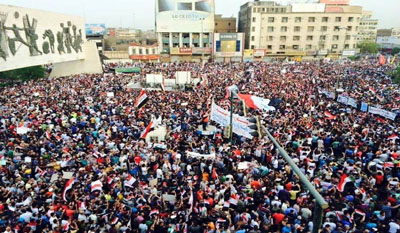
IRAQ: Towards a Civil Democratic State, Social Justice and Citizens’ Rights
The following interview with Comrade Salam Ali, member of the Central Committee of the Iraqi Communist Party, was conducted by "Nameh Mardom", the central organ of the Tudeh Party of Iran. It was published in its edition No.1047 on 19 March 2018.
The interview dealt with the recent important developments in Iraq and the electoral alliance of the Iraqi Communist Party in preparation for the parliamentary elections on 12 May 2018.
- To begin with, please could you briefly explain the current state of political affairs in Iraq and its effect on the daily lives of the people there? What urgent matters are the people facing?
The developments in Iraq during recent months have indicated contradictory trajectories. On one hand, a big national victory over Daesh and terrorism was achieved, liberating territories from its control. The prime minister declared his intention to combat corruption and also to open up on the Arab world and internationally. On the other hand, however, our country continues to languish under the burden of a deep structural crisis that is manifested in grave political and social-economic crises. These include the repercussions of the crisis caused by the Kurdistan region’s referendum last September, and the failure of the state to function properly. This had led to the deterioration of living conditions, the erosion of the real value of wages, increased dependence on oil revenues, the pursuance of the path of unfettered liberalism, and continued deterioration in industry, agriculture and services. In addition, there is the continuation of problems caused by the sectarian-ethnic quota system, sectarian politics and rampant corruption. The government has also failed to implement its own calls for putting arms under the control of the state, the equal application of the law, and tackling many other outstanding issues.
One of the urgent tasks is to ensure the speedy return of 2.3 million people, who had been displaced by Daesh and the battle to defeat it, to their homes. In addition, the catastrophic destruction inflicted on the city of Mosul and many towns requires huge efforts and international support. Tackling the heavy legacy of Daesh, which controlled vast areas for nearly two and a half years, after the fall of Mosul in June 2014, requires consistent efforts to repair the social fabric in liberated areas through societal reconciliation, and preventing any attempts to change the demographic structure of the population according to narrow political, sectarian and electoral calculations.
As a result of this situation, increasing numbers of people have refused the continuation of the status quo under the same political system and policies which have led to a resounding and miserable failure. Attempts by the ruling forces and blocs to contain the mounting popular resentment have failed to tackle the essence of the crisis; the sectarian-ethnic quota system.
The broad popular protest movement which has continued since late July 2015, with demonstrations in central Baghdad and other provinces, has become a significant factor in the political scene. It has galvanised the people into action, demanding political reform and real change. Our party, along with other civil democratic forces, have been active participants in this movement, with the aim of developing its momentum and broadening its ranks, in order to achieve a breakthrough that is essential to break the monopoly over power and bring about change towards a democratic national alternative.
- What are the latest developments in the fight against ISIS, other reactionary elements in the country and the presence of foreign states - including the US and Iran - in Iraq?
The military defeat of Daesh by the Iraqi armed forces, with all its formations, does not mean a final defeat of terrorism. Achieving this aim requires an integrated approach and policies on political, military-security, economic, cultural and medial levels. Areas liberated from Daesh are facing huge difficulties and challenges that require urgent action both by the central government and local authorities. In this respect, as pointed out earlier, societal reconciliation and effective administration on both security and civil levels, are crucial for ensuring the return of peace and stability, eliminating the remnants of Daesh and its sleeper cells, and preventing the return of terrorism in new forms.
The ferocious battle against terrorism and Deash in the region has provided a pretext for external interference in Iraq, Syria and other countries in the Middle East by the US imperialism and regional forces, particularly Turkey, Iran and Saudi Arabia. In the aftermath of the military defeat of Daesh by the Iraqi armed forces, there have been increasing calls for an end to the direct US military presence as part of an international coalition against Deash. The Iraqi government has declared its opposition to any permanent presence of foreign forces and military bases. It also reiterated its rejection of the presence of Turkish troops across the borders inside Iraq, in Nineveh province, demanding their withdrawal. Iran also repeatedly declared its determination to defend its own national security against external threats. Any escalation of the conflict between the US and Iran is bound to have a profound impact on the situation in Iraq and its future stability, and in the whole region. Russia is also competing with the US in the field of armaments, offering recently to provide Iraq with advanced aircraft.
In this context, it is worth mentioning that the “Arab and Islamic – US” summit that was held in Riyadh in May 2017, with the presence of the US president Donald Trump, revealed the efforts to strengthen the hegemony of the US over the region through establishing an international-Middle Eastern alliance that does not exclude a possible participation of, or support by, Israel. That summit also clearly indicated that the proposed alliance would confront the Iranian influence in the region. The sectarian dimension of the conflict, as indicated by the Riyadh summit, has raised fears of an escalation of the polarization, tension and an arms race, with the dangers of a military confrontation. This opens the door for more external interference and proxy wars that only serve regional and international agenda.
It is our party position that Iraq and our people have no interest whatsoever in deepening the regional and international polarization and the militarization of the Middle East. The party has called for keeping Iraq away from any axis, maintaining good-neighbourly relations and utilizing all available potential to defeat terrorism and achieve reconstruction. This requires rebuilding national unity, to enable Iraqis to confront foreign interference and open up prospects for Iraq’s development.
- Since early 2017 there have been reports of shifting alliances and a major realignment of political forces on the scene in Iraq... The visit by Moqtada al-Sadr to Saudi Arabia; the decision by Ammar al-Hakim to leave his position as leader of the Islamic Supreme Council of Iraq, the dominant party in Iraq's ruling Shiite alliance, and establish the National Wisdom Movement; and, even certain indications by Haider al-Abadi, the Iraqi Prime Minister, that he might consider standing on the ticket of a national secularist coalition of forces. In your view, what are the reasons for such developments?
This process of fragmentation, differentiation and realignment within the major blocs of ruling groups and forces has come about as a result of the deepening political crisis of sectarian-ethnic power-sharing (quota) system that has been in place since 2003 when it was installed and imposed after the US war and occupation. It accelerated under pressure from the popular mass protest movement which has continued since late July 2015 and has shaken the foundations of the political system, calling for reform and change, combating corruption and political sectarianism. Hundreds of thousands of people took part, at its peak, demonstrating under the Iraqi flag and civil slogans, stressing their Iraqi national identity, away from secondary identities, sectarian affiliation and bigotry. This movement, which has been consistently peaceful, despite various violent measures to suppress it, has had a big impact on the political life in Iraq and forced some of the ruling blocs to change tactics and employ various means to maintain their hold over political power. Some have co-opted civil figures, but this has not changed their predominantly sectarian character. Other ploys have included attempts to fragment the votes of civil forces by encouraging the formation of parties under civil titles.
Both so-called “Shiite” and “Sunni” blocs have witnessed splits and political restructuring. Inner struggles also intensified within constituents of the National Alliance, the biggest parliamentary bloc, such as the Daawa party and the Supreme Assembly. The Sadrist movement, which joined the mass protest movement in early 2016, split from the National Alliance and resisted external pressures to go back to it. It culminated this process by entering into a broad electoral coalition entitled “Saeroun” along with the Communist Party and few other groups of a liberal character. The Kurdistan bloc too witnessed internal conflicts and splits, especially after the referendum crisis in September 2017 and its negative repercussions for the Kurdistan region. Despite these splits, various sectarian groups have struck deals to come together after the parliamentary elections in May 2018 in order to maintain their monopoly over political power and reproduce the power-sharing (quota) system.
It should also be pointed out that despite the popular demands for amending the unjust electoral system, that employs the so-called Sainte-Lague system, the parliament which is dominated by the ruling blocs eventually kept the same electoral system with a divisor of 1.7, thus producing a high threshold which favors larger blocs. Previous elections were also witnessed widespread rigging and manipulation, compounded by corruption.
- The upcoming May election in Iraq will see a new and important development with respect to a strategic alliance between forces - made up of Communists, liberals and certain Islamist factions. What developments within Iraq’s present political landscape have led to such a diverse spectrum of forces forming an alliance, and what are the top three priorities of this national alliance’s ‘minimum programme’?
The new electoral coalition “Saeroun” (i.e., Marching toward Reform), which includes the Communist Party, the “Istiqama” (Integrity) Party, which is backed by the Sadrists, and four other groups of a liberal character, was announced in Baghdad on 12 January 2018. This development was in line with our party policy that was endorsed by its 10th National Congress held in December 2016. It also came about as an outcome of the popular protest movement which has been continuing since July 2015 with a broad participation of civil activists, including Communists and their supporters, as well as the Sadrists (i.e. supporters of Muqtada al-Sadr). In the course of this movement and during demonstrations and protests, relations of cooperation and coordination over joint slogans and demands developed, that called for reform and change, combating corruption, provision of services and alleviating the suffering of the popular strata, as well as establishing a state based on citizenship; a democratic civil state based on social justice.
Our party’s 10th National Congress pointed out that in view of the deadlock caused by the deep political crisis gripping Iraq, and the rulers’ insistence on their bankrupt policies and positions, change has become an urgent objective necessity. It can only be achieved through an alternative that puts an end to the system of political sectarianism and opens up a horizon and a space for establishing a democratic civil state. Such an extensive and significant change would require new forces and alliances that can bring about a real change in the balance of effective forces, rather than reproducing the system of sectarian-ethnic power sharing.
The party’s Congress also stressed that achieving a state based on the principle of citizenship, law, institutions and true democracy requires a persistent and accumulative struggle, and supra confessional national civil alliances and alignments, and the mobilisation of a broad spectrum of forces that support reform and change. Based on this policy, the party’s Central Committee meeting in December 2017 called for continuing the work with the Democratic Current (movement) to open up on all the civil and democratic forces. It also pointed out that developments and the continuing protest movement had indicated the possibility of cooperation and coordination with broader national forces, including some moderate and enlightened Islamists. These developments laid the basis for striving to set up a broad national democratic civil alignment, in order to form a big electoral bloc that would contest the elections, break the monopoly of political power and open up the path toward a democratic civil alternative.
- The Sadrist forces have been reputed to be politically erratic, self-centred and heavily reliant on the regime in Tehran. Considering the historic background of Islamists - and what has taken place in Iran over the past four decades - please could you elaborate on the decision of the Iraqi Communist Party to take part in this strategic alliance? Are there other political forces that you are planning to ally with in this election?
As pointed out earlier, the Sadrists distanced themselves from sectarian politics, joined the mass protest movement that had been launched earlier by democratic civil forces, supported its demands against corruption and the sectarian-ethnic quota system, and for political reform. They pulled out their ministers from government and eventually split from the grand “Shiite” coalition that had dominated political power and shared power with “Sunni” and “Kurdistani” blocs on the basis of the basis of the sectarian-ethnic quota system. Cooperation and coordination also developed with between the Sadrists, Communists and civil activists in the coordinating committees of the protest movement in Baghdad and other provinces.
The new electoral coalition “Saeroun” has a civil national identity and clear objectives that serve the interests of the Iraqi people and their desire to end political sectarianism and corruption. Its inner rules also stress the political, ideological and organisational independence of its constituent parties. The main slogan raised when the coalition was launched in Baghdad was “For Building a Civil State .. Citizenship and Social Justice”. As pointed out by Comrade Raid Fahmi, the Secretary of our party’s Central Committee, during that event, the coalition will strive to strengthen Iraq’s national sovereignty and independence, and ensure the equal participation of citizens in all political and social aspects within a unified federal and democratic Iraq. Its programme considers elevating the role of women and youth in Iraq’s political life among its most important objectives. The party has also reaffirmed its determination to continue to its relations and cooperation with other democratic civil forces, before the elections and afterwards.
As for concerns raised in the question, regarding the historic background of Islamists and the Iranian experience, it is important to take into account the need for a concrete analysis of the concrete conditions in Iraq and its own specifics, including the Islamic forces. The replies to previous questions, dealing with the political landscape and developments, and the urgent need for change and saving the country from sliding further into the abyss of political sectarianism with catastrophic consequences, may be useful in this respect.
- On 18thFebruary 2018, Ali Akbar Velayat, the Special Advisor to the Supreme Leader, Khamenei, dictated the Islamic Republic of Iran’s terms and conditions for the upcoming May election in Iraq, by stating that “the Islamic awakening will not allow the communists and liberals to return to power in Iraq”. What is your view on this blatant interference in Iraq?
The statement delivered by Velayeti in Baghdad on 17th February was clearly referring to the electoral coalition “Saeroun”, between the Sadrists and Iraqi Communists. It sparked controversy and drew criticism from various Iraqi political forces and figures.
The head of “Saeroun”, Dr Hassan al-Aqouli, issued a statement indicating his rejection of foreign interference in Iraqi institutions or attempts to influence Iraq’s internal decision. He defended the diversity within the coalition, saying that “no external voice can undermine it, dismantle it or exclude it from its place in leading the country to safety, away from sectarian elements, terrorists and the corrupt.”
The Communist Party considered Velayeti’s statement an interference in Iraq’s internal affairs and a blatant violation of Iraq’s Constitution under which the Communists and liberals are working, as political parties that are officially licensed in accordance with the Iraqi Law of Parties. It warned that allowing such statements would open the door to further interference that aims at influencing the results of the elections and its freedom.
The party also stated that it strives always to develop good relations between Iraq and its neighbours on the basis of mutual interests, respect for the independence and sovereignty of states and the choices of their peoples, and non-interference in their internal affairs.
- التفاصيل
- المجموعة: English
- الزيارات: 4648
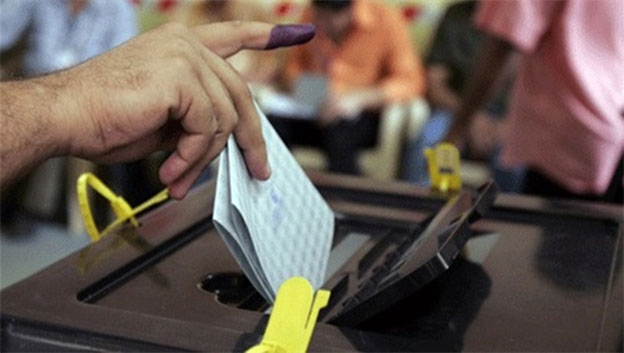
Sehr geehrte Damen und Herren,
aus Anlass der bevorstehenden Parlamentswahlen im Irak erhalten Sie anbei das an die zuständigen irakischen Instanzen gerichtete Memorandum zivilgesellschaftlicher Organisationen in Deutschland über die unbefriedigenden Begleitumstände dieser Wahlen (Anlage).
Es ist ohne Zweifel erfreulich, dass ein solcher demokratischer Akt mit weitreichenden Auswirkungen in einem Land wie im Irak stattfindet. Wie aus dem Memorandum hervorgeht, werden aber hohe Hürden vor der Teilnahme der Auslandsiraker gestellt, sodass eines ihrer wichtigsten Bürgerrechte in eklatanter Art und Weise beschränkt oder gar beschnitten wird.
Davon sind die Interessen aller irakischen Bürger betroffen, die in Deutschland für immer oder längerfristig ihren Lebensmittelpunkt gefunden haben, aber in Verbundenheit mit den Menschen und Lebensumständen in ihrer ursprünglichen Heimat Irak sind. Es sind eingebürgerte Iraker, die ihren gesellschaftlichen und wirtschaftlichen Beitrag in Deutschland leisten und sich für die unteilbaren Menschenrechte auch im Irak einsetzen.
Es sind aber auch die zehntausende irakische Flüchtlinge, die ihr nacktes Leben retten wollten und hier Zuflucht gefunden haben, auch ohne Papiere und Dokumente. Die überwiegende Mehrheit dieser Menschen möchte in die Heimat zurückkehren, um am Aufbau des zerschundenen Landes teilzunehmen. Sie möchten aber auch durch die Abgabe ihrer Stimmen bei den Wahlen, die ihnen mit unlogischen und unhaltbaren Bedingungen verwehrt wird, mitbestimmen, wie ein wahrhaft demokratischer ziviler Irak gestaltet wird, fern jeglicher Machteilung nach Konfessionen und Nationalitäten, friedlich, korruptionsfrei und ohne religiöse ethnische Diskriminierung.
Wir richten unseren Appell an Sie mit der Bitte: Helfen Sie uns und unseren Mitmenschen mit den Ihnen zustehenden Mitteln und Möglichkeiten, Druck auf die Regierenden im Irak auszuüben, um die Parlamentswahlen demokratisch und Ausschluss der Mehrheit der ohne Auslandiraker zu gestalten.
Mit freundlichen Grüßen
Im Auftrag der Unterzeicher des Memorandums
Prof. Dr. Kadim Habib
Verteiler:
Christlich Demokratische Union
Christlich-Soziale Union
Sozialdemokratische Partei Deutschland
Freie Demokratische Partei
Bündnis90/Die Grünen
Die Linke
CDU/CSU Fraktion im Bundestag
SPD-Fraktion im Deutschen Bundestag
FDP-Bundestagfraktion
Fraktion der Linke im Bundestag
Bundestagsfraktion Bündnis 90/Die Grünren
Konrad-Adenauer-Stiftung
Hans-Seidel-Stiftung
Friedrich-Naumann-Stiftung für die Freiheit
Heinrich-Böll-Stiftung
Rosa-Luxumburg-Stiftung
Transparancy International Deutschland e. V.
Amnesty International Deutschland
Info.amnesty.de
Memorandum:
Sehr geehrter Vorsitzender, sehr geehrte Mitglieder des Unabhängigen Oberkommissariats der Wahlen
Sehr geehrter Präsident der Irakischen Republik Herr Foad Maasum
Sehr geehrter Ministerpräsident Herr Haidar Alabadi
Sehr geehrter Parlamentspräsident Herr Salim Aljiburi
Sehr geehrter Präsident des Bundesgerichts Herr Faik Zaidan
Sehr geehrter Botschafter der Republik Irak in der Bundesrepublik Deutschland Herr Dhiaa Aldabbas
Das Unabhängige Oberkommissariat der Wahlen rief die Auslandsiraker dazu auf, ihre persönlichen Daten im elektronischen Portal des Kommissariats zu registrieren, indem sie „das Formular zur Registrierung der Wähler außerhalb Iraks“ ausfüllen. Das Kommissariat prüft in Zusammenarbeit mit dem Innenministerium die Angaben des Wählers und vergleicht sie mit den Angaben im Wählerregister. Nach Feststellung der Eintragungen und der irakischen Zugehörigkeit erhält der betreffende Wähler per E-Mail eine Nachricht über die Möglichkeit seiner Beteiligung an den irakischen Wahlen. Das Kommissariat legte fest, dass die Eintragung dieser Angaben in der Zeit vom 2. Januar bis 2. März 2018 erfolgen muss. Das Kommissariat bat „die politischen Parteien und die zivilgesellschaftlichen Organisationen um die Aufklärung der Wähler im Sinne der Registrierung entsprechend der vom Kommissariat festgelegten Formalitäten“.
Wir, die zivilgesellschaftlichen Organisationen im Ausland, unterstützen diese Orientierung und Vorhaben zur Feststellung der irakischen Staatsangehörigkeit des Wählers durch den Einsatz moderner elektronischer Technik bei der Wählerregistrierung. Wir sind auch bereit, dabei zu kooperieren und unterstützende Arbeitsgruppen in den Städten zu bilden, um den Prozess der Registrierung der potentiellen Wählerinnen und Wähler in der Bundesrepublik Deutschland aktiv zu gestalten.
Viele Auslandsiraker sind im Besitz des irakischen Staatsangehörigkeitszeugnisses oder des irakischen Bürgerhefts aus dem Jahre 1957. Es werden nun weitere Dokumente zur Vervollständigung der Angaben im Formular gefordert. Der Wähler muss beispielweise Reisepässe neueren Typs, die Einheitliche Nationale Karte, den neuen Personalausweis und/oder die Wahlnummer vorweisen.
Wir verstehen nicht den Sinn solcher unrealisierbaren Forderungen. Das Kommissariat vergleicht ohnehin die Angaben des Wählers im Bürgerheft / Staatsangehörigkeitszeugnis mit den Angaben in den irakischen Registern zur Feststellung der irakischen Identität des Wählers. Wenn dem so ist, warum besteht man auf der Vorlage weiterer Dokumente, die die Auslandsiraker größtenteils nicht besitzen können, beispielweise die Wählernummer, die Versorgungskarte oder den modernen Reisepass?
Es gelang dem Unabhängigen Oberkommissariat der Wahlen in allen vorangegangenen Wahlen immer wieder, hunderttausende Auslandsiraker unter unhaltbaren und unlogischen Begründungen den Wahlurnen fernzuhalten. Es setzt nun diese Praktiken weiterhin fort, um die Wählerzahl im Ausland gering zu halten, indem Forderungen gestellt werden, die die Auslandsiraker nicht erfüllen können. Steckt dahinter wirklich die Durchführung integrerer Wahlen oder gibt es andere Gründe dafür, von denen wir nichts wissen?
Als unterzeichnende zivilgesellschaftliche Organisationen, politische Parteien und unabhängige demokratische Persönlichkeiten des öffentlichen Lebens fordern wir die unrealisierbaren Bedingungen zu überdenken und den Auslandsirakern und ihren Kindern, die an den letzten Wahlen teilgenommen haben, die Teilnahme an den bevorstehenden Wahlen, wie jedem anderen irakischen Bürger im Irak, zu ermöglichen. Vertreter des Kommissariats sollen sich schnellstens ins Ausland begeben, um die Registrierung der Wähler selbst vorzunehmen und zu überwachen. Die alten wie neuen offiziellen irakischen Dokumente, die vom Staat selbst ausgestellt worden waren, müssen akzeptiert werden. Unzählige Auslandsiraker haben bisher vieles ertragen und die Flucht ergreifen müssen. Erhöht bitte nicht deren Leiden und gewährt ihnen ihr in der Verfassung verbrieftes Recht auf Teilnahme an den Wahlen.
Februar 2018
Die Unterzeichner des Memorandums:
Organisation der Irakischen Kommunistischen Partei in Deutschland
- Organisation der Kurdischen Kommunistischen Partei in Deutschland
- Koordinierungskomitee des Demokratischen Forums – Zweigstelle Deutschland
- Dr. Kadim Habib
- Ost-West Diwan in Köln
- Diwan Oldenburg e:V
- Vertreter der Al-Warkaa-Wahlliste in Deutschland
- El-Iraker-Treff V
- التفاصيل
- المجموعة: English
- الزيارات: 3824
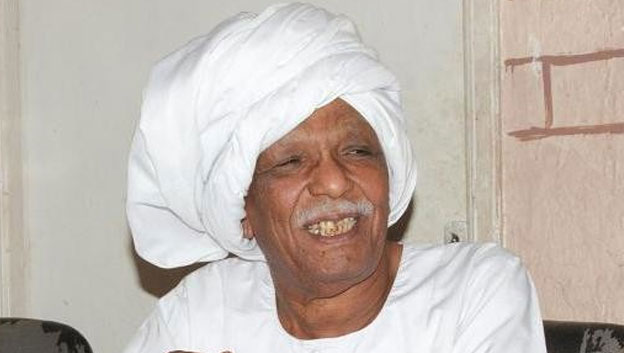
URGENT! Common Appeal
of the Communist and Workers’ Parties
For the Immediate Release of the leaders of the Communist Party of Sudan and all political detainees
in Solidarity with Working People of Sudan
The Communist and Workers’ parties that sign this statement have received verified information that in the past few days Comrade Mohamed Mokhtar Al-Khatieb, the Political Secretary of the Sudanese Communist Party, and a number of members of the Central Committee and leading cadres of the SCP have been arrested by the security forces of the regime. The party leadership was attacked following a successful mass demonstration in center of the capital Khartoum on Tuesday 16 January 2018 protesting against the rise in the price of bread.
We believe that the health and lives of the detainees of the Sudanese Communist Party are in imminent danger.
The dictatorial regime in Sudan has demonstrated that it will resort to the use of force to prevent the peaceful protesters from practising their constitutional rights to organise and participate in peaceful demonstration against the regime’s economic policies.
The arrest of the communist leaders in Sudan is coupled with the detention of opposition political leaders and activists, and the confiscation of newspapers, including Almidan, the central organ of the SCP.
The Communist and Workers’ parties co-signing this statement express their support to and solidarity with the struggle of the Sudanese people and workers for peace, democracy and social justice and demand:
- The immediate release of all political detainees;
- Freedom for Comrade Al-Khatieb and leading cadres of SCP;
- Respect of democratic rights and freedoms of the people;
- The abolition of the new economic measures introduced by the regime that will inevitably result in starving the majority of the Sudanese people.
Parties that sign the Common Appeal:
- Communist Party of Albania
- PADS
- Communist Party of Argentina
- Party of Labour of Austria
- Communist Party of Australia
- Communist Party of Azerbaidjan
- Progressive Tribune, Bahrain
- Communist Party of Bangladesh
- Communist Party Wallonia-Brussels (Belgium)
- Workers' Party of Belgium (PTB)
- Brazilian Communist Party
- Communist Party of Britain
- Communist Party of Canada
- Socialist Workers Party of Croatia
- AKEL, Cyprus
- Communist Party of Bohemia and Moravia
- Communist Party of Esthonia
- Communist Party of Egypt
- French Communist Party
- Communist Party of Macedonia
- German Communist Party
- Communist Party of Greece
- People's Progressive Party of Guyana
- Hungarian Workers Party
- Communist Party of India
- Communist Party of India (Marxist)
- Iraqi Communist Party
- Tudeh Party of Iran
- Communist Party of Ireland
- Workers Party of Ireland
- Communist Party (Italy)
- Jordanian Communist Party
- Lebanese Communist Party
- Socialist People's Front, Lithuania
- Communist Party of Luxembourg
- Communist Party of Mexico
- New Communist Party of the Netherlands
- Communist Party of Norway
- Communist Party of Pakistan
- Palestinian People’s Party
- Paraguayan Communist Party
- Philippine Communist Party [PKP-1930]
- Communist Party of Poland
- Portuguese Communist Party
- Communist Party the Russian Federation
- Union of Communist Parties - CPSU
- Communist Party of the Soviet Union
- New Communist Party of Yugoslavia
- Party Communists of Serbia
- South African Communist Party
- Syrian Communist Party
- Communist Party of the Peoples of Spain (PCPE)
- Sudanese Communist Party
- Communist Party of Sweden
- Communist Party of Turkey
- Communist Party of Ukraine
- Communist Party USA
- CP of Venezuela

